Why is there such a lack of diversity at Oxbridge?
Newly revealed figures show some Oxford and Cambridge colleges admitted no black British students between 2012 and 2016
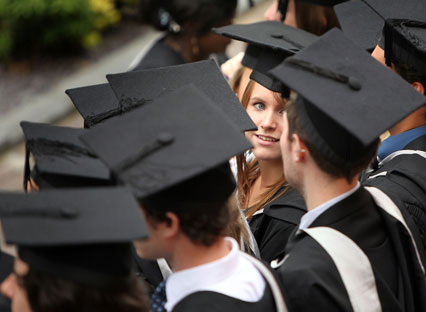
A free daily email with the biggest news stories of the day – and the best features from TheWeek.com
You are now subscribed
Your newsletter sign-up was successful
Oxford and Cambridge universities face being fined if they fail to recruit students from a wider range of backgrounds, Universities Minister Sam Gyimah has warned.
Gyimah criticised the elite institutions’ poor diversity records after newly released figures showed the extent of their failure. According to statistics obtained by the Financial Times under a Freedom of Information request, some Oxbridge colleges admitted no black British students, or as few as one a year, between 2012 and 2016.
Oxford also recently released data showing that one in four of its colleges had failed to admit a single black British student between 2015 and 2017.
The Week
Escape your echo chamber. Get the facts behind the news, plus analysis from multiple perspectives.

Sign up for The Week's Free Newsletters
From our morning news briefing to a weekly Good News Newsletter, get the best of The Week delivered directly to your inbox.
From our morning news briefing to a weekly Good News Newsletter, get the best of The Week delivered directly to your inbox.
“Having been to Oxford as a black student, I think the disappointment is that it was rare in my day 20 years ago, and it is still rare,” Gyimah said.
“Given that universities have some of the brightest minds, the very notion that they haven’t been able to work out how to attract diverse, excellent students is extremely disappointing. Universities have got to begin to live in the 21st century.”
Why does it happen?
Part of the problem is a lack of applications from black students, which means the final number “who actually attend Oxford is always likely to be very small, even if you leave aside any question of bias or prejudice”, says Channel 4’s FactCheck blog.
A free daily email with the biggest news stories of the day – and the best features from TheWeek.com
When asked why they thought admissions were so low, black British students who had attended Oxbridge cited “the fear of racism from other students, concerns around not fitting in, a lack of support in applying, and insane competition for places”, says Business Insider.
Cambridge student Timi Sotire told the website that she had plenty of first-hand experience of everyday racism. Sotire said she has encountered people who are unable to pronounce her name, had her afro “petted”, and regularly heard the appropriation of black slang.
“Unfortunately, this has all come from friends, and as the only black person in my friendship group, sometimes I am one of the only people defending my corner,” she said.
Young people from ethnic minority backgrounds told researchers from Bath University’s Institute for Policy Research, who compiled a table of ethnic compositions at UK universities, that they were concerned about “feeling uncomfortable or thought they might be stared at” if they went to places with few other minorities.
There is also an “issue with black attainment”, Raph Mokades, the founder of outreach programme Target Oxbridge, told Business Insider.
“It’s not that there are no black people who are good enough to go to Oxbridge; that’s not what’s happening,” Mokades said. “But black people aren’t doing as well in their exams as say, Chinese people or Indian people, who do better than white people too. It’s not terrible, and it’s much better than it was in the past, but we want more black kids getting As and A*s.”
Who’s to blame for the problem?
Gyimah believes that the onus is on the universities to “promote admissions from state schools through broader outreach programmes, as a high proportion of applicants still came from the elite feeder schools where pupils were coached on how to get in from an early age”, reports The Times.
However, universities such as Oxbridge “can only do so much to counteract the effects of inequities within the education system that are constantly screwing over black kids”, argues Olivia Hylton-Pennant, the Cambridge student union’s access officer.
“We need more senior black figures working in education and greater cohesion between these figures across the board,” she tweeted.
Research suggests young people are segregated well before they submit their university applications. Analysis from Demos in 2015 found that 61% of ethnic minority pupils in England went to schools where ethnic minority pupils are a majority.
In 2016, the Social Integration Commission found that people under 17 have, on average, fewer than 50% of the interactions with other ethnicities than would be expected if there was no social segregation.
But universities “are also a cause of segregation because, as they gain reputations for being undiverse, they repel perfectly capable students from non-white and underprivileged backgrounds who should consider studying there”, says The Guardian’s Afua Hirsch.
It is also “the shortcomings of the decentralised, college-based admissions system, which lacks transparency and, it seems, leads to differing assessment standards, thereby damaging claims of a level playing field in assessment between colleges”, says Cambridge student newspaper The Tab.
What can be done about it?
Oxford says it will be expanding its summer school programme by 50%. The university insists that it is making “rapid progress” and that tutors were taking into account GCSE results and whether students are from an “underprivileged background, in care or from a poorer-performing school”.
Cambridge, meanwhile, says it is committed to attracting “high-achieving students”, regardless of background, and had made “significant progress” in the last decade.
Both universities have so far “resisted pressure to introduce systematic schemes for reduced offers”, instead opting for a “flagging” system which alerts tutors to applicants from disadvantaged backgrounds, according to The Times.
Gyimah has urged Oxbridge to reconsider, warning that “very hard levers” are now available to the university watchdog, the Office for Students, if the universities fail to meet targets for access and participation.
-
 How the FCC’s ‘equal time’ rule works
How the FCC’s ‘equal time’ rule worksIn the Spotlight The law is at the heart of the Colbert-CBS conflict
-
 What is the endgame in the DHS shutdown?
What is the endgame in the DHS shutdown?Today’s Big Question Democrats want to rein in ICE’s immigration crackdown
-
 ‘Poor time management isn’t just an inconvenience’
‘Poor time management isn’t just an inconvenience’Instant Opinion Opinion, comment and editorials of the day
-
 American universities are losing ground to their foreign counterparts
American universities are losing ground to their foreign counterpartsThe Explainer While Harvard is still near the top, other colleges have slipped
-
 Where will international students go if not the US?
Where will international students go if not the US?Talking Points China, Canada and the UK are ready to educate the world
-
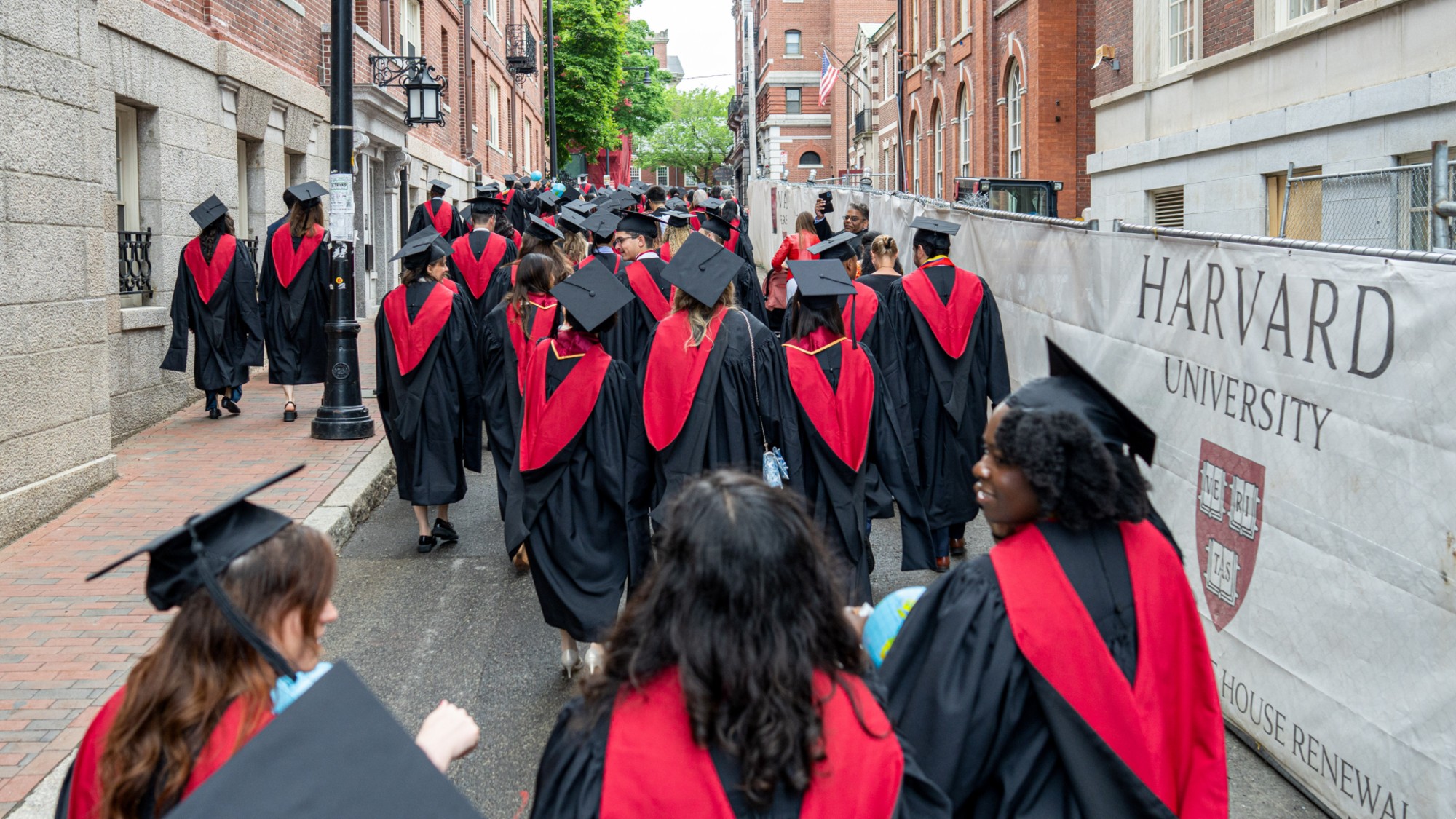 Colleges are canceling affinity graduations amid DEI attacks but students are pressing on
Colleges are canceling affinity graduations amid DEI attacks but students are pressing onIn the Spotlight The commencement at Harvard University was in the news, but other colleges are also taking action
-
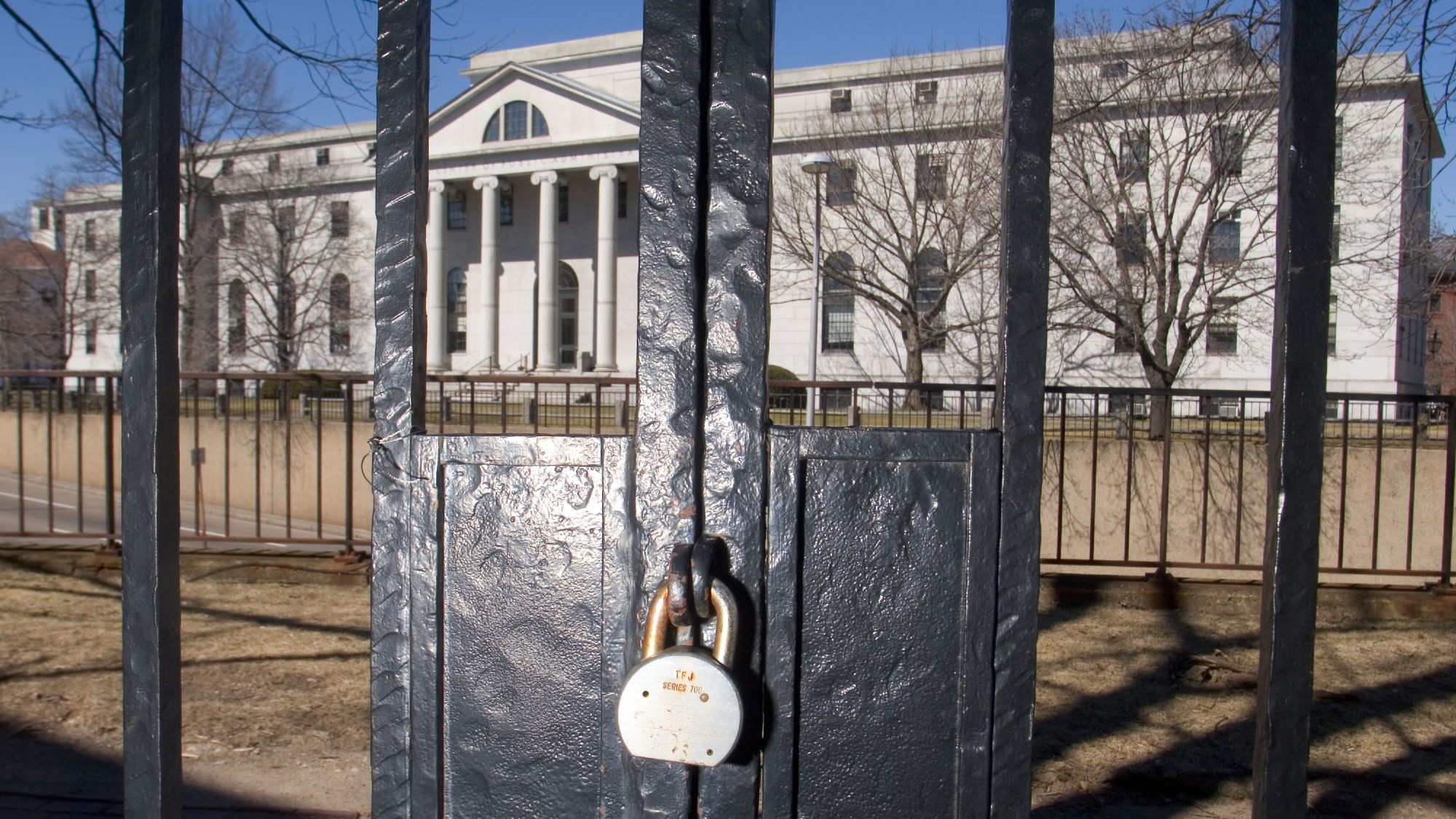 Can Trump ban overseas students from US universities?
Can Trump ban overseas students from US universities?Today's Big Question President's decision to revoke Harvard's access to database for admitting international students 'drastically escalates' the dispute
-
 America's academic brain drain has begun
America's academic brain drain has begunIN THE SPOTLIGHT As the Trump administration targets universities and teachers, educators are eying greener academic pastures elsewhere — and other nations are starting to take notice
-
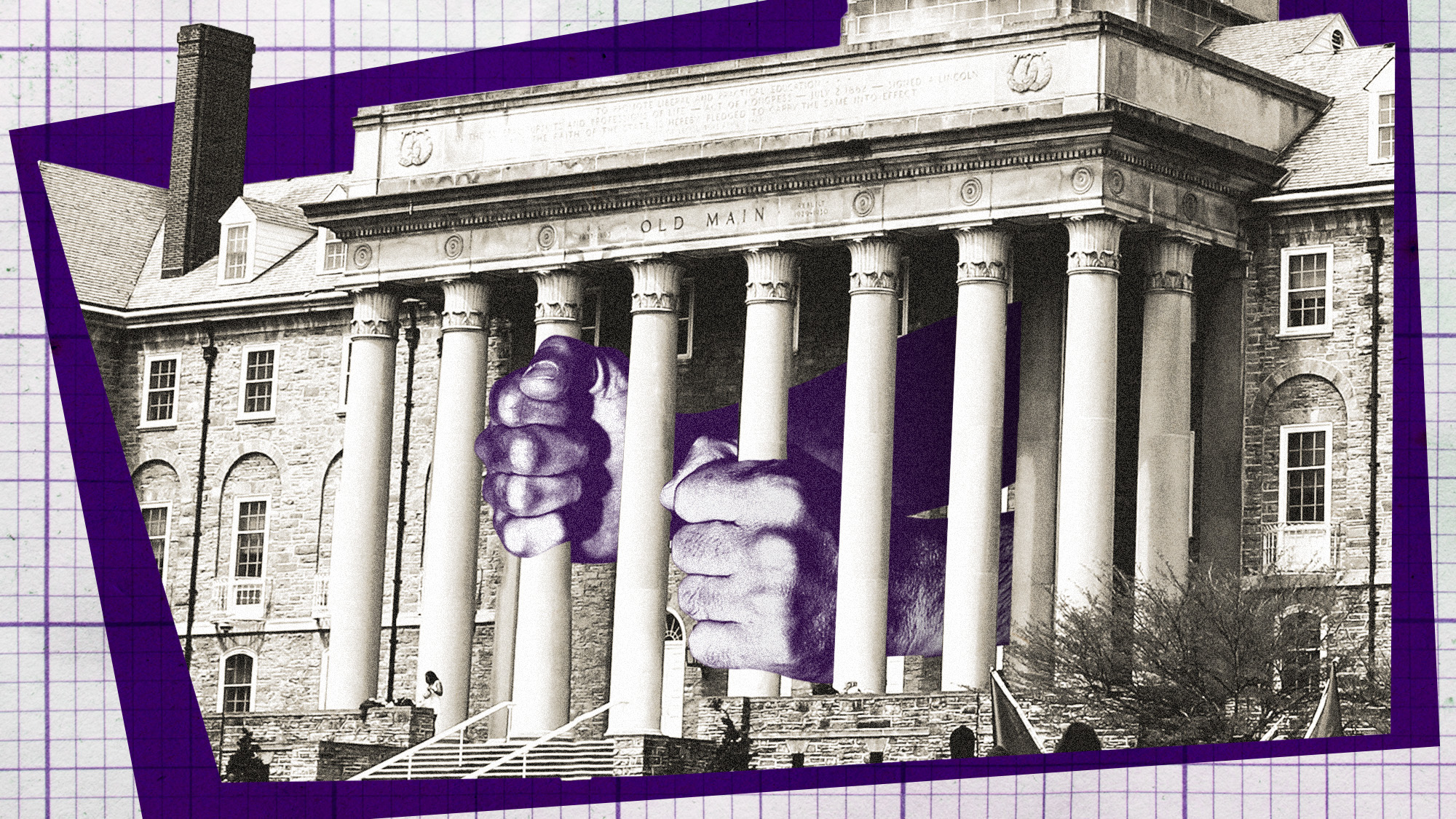 Is academic freedom in peril?
Is academic freedom in peril?Today's Big Question Faculty punishments are on the rise
-
 Anti-Israel protests impact a Jewish-rooted university
Anti-Israel protests impact a Jewish-rooted universityThe Explainer The president of Brandeis University resigned as a result of multiple factors, including his handling of recent protests
-
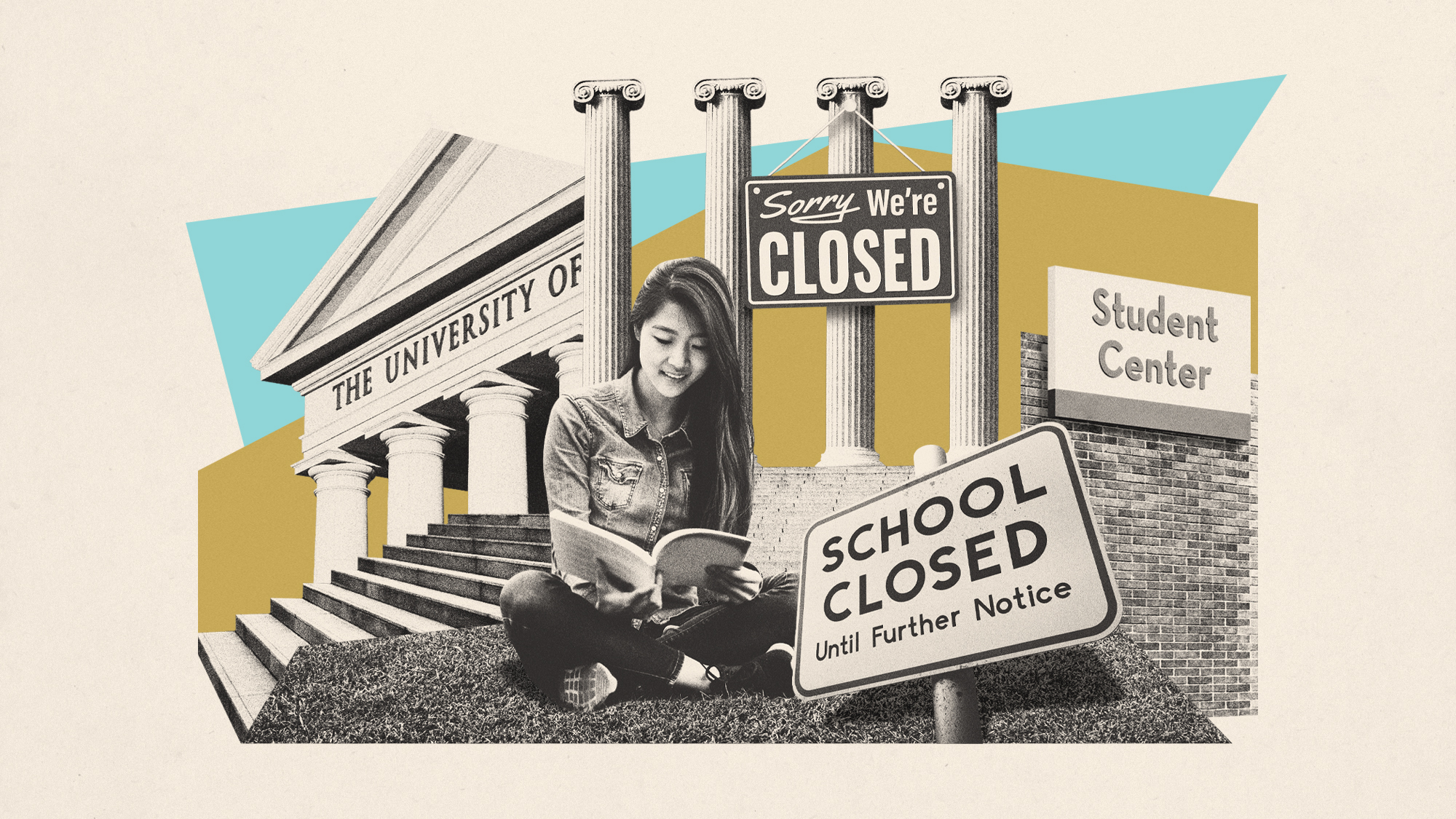 Why are so many colleges closing?
Why are so many colleges closing?Today's Big Question 'Enrollment cliffs' and higher tuition both play a role